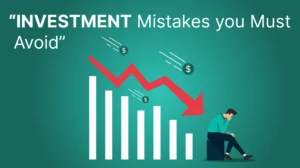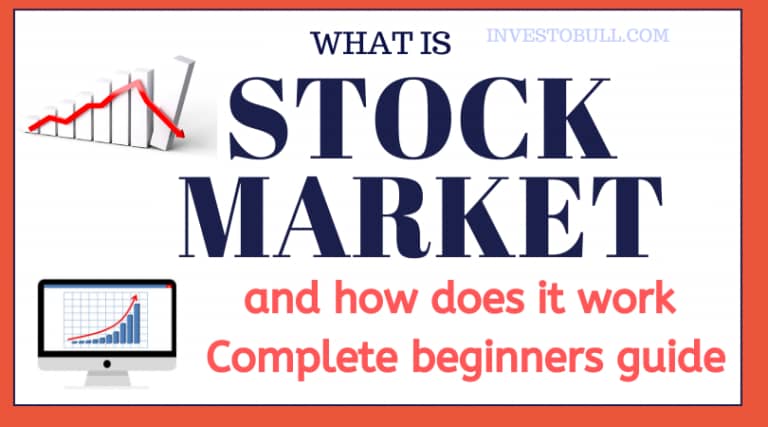Investing in the stock market can be thrilling, like riding a roller coaster designed by someone who skipped math class and got their engineering degree online. One moment, you’re soaring; the next, you’re plunging downwards. But while the highs are exhilarating, the lows can be devastating—especially if you fall victim to common investment mistakes.
In this article, we’ll explore the top eight investment mistakes you should avoid at all costs. We’ll sprinkle in some humorous quips, expert quotes, and a pinch of sarcasm to keep you entertained. So buckle up and let’s dive into the stock market jungle—just try not to trip over a banana peel along the way!
Investment Mistake #1: Jumping on the Bandwagon

You’ve heard the phrase, “If your friends jumped off a cliff, would you jump too?” Well, in the stock market, it’s more like, “If your friends start buying tech stocks, would you also?”
- Herd Mentality: Don’t let your investment strategy be dictated by groupthink. Yes, everyone seems to be raving about the next big tech stock, but remember that just because your neighbor bought in doesn’t mean it’s a wise move.
Warren Buffett cleverly said, “Be fearful when others are greedy and greedy when others are fearful.” Wise words from the Oracle of Omaha!
Bandwagon investing can lead to buying high and selling low.
How to Avoid the Investment Mistake
– Do your own research.
– Assess a company’s financial health and future potential rather than just following a trend.
Investment Mistake #2: Ignoring Diversification
In the world of investing, putting all your eggs in one basket is as smart as adopting a pet snake and feeding it nothing but mice.
- The Risk: Relying on a single investment can lead to catastrophic losses. If that stock tanks, so does your portfolio.
A well-diversified portfolio can reduce risk significantly. According to a study by Vanguard, diversifying your investments can lower your portfolio’s volatility by 10%.
If diversification was a relationship status, it would definitely be “It’s complicated.”
How to Avoid that Investment Mistake
– Invest in a mix of asset classes (stocks, bonds, ETFs) to spread your risk.
– Remember: It’s not just about owning stocks; real estate or bonds can be your best friends too!
Investment Mistake #3: Timing the Market
Ah, timing the market—the Holy Grail of investing! If only we had a crystal ball.
- Market Timing Myth: Many investors think they can predict the highs and lows. Spoiler alert: They can’t.
Peter Lynch once quipped, “No one can predict the future.” He wasn’t being dramatic; he was enlightening!
According to a study by Morningstar, missing just a few of the best trading days in the market can drastically reduce your returns.
How to Avoid that Investment Mistake
– Focus on a long-term investment strategy rather than short-term gains.
– Consider dollar-cost averaging—investing a fixed amount regularly regardless of market conditions.
Investment Mistake #4: Emotional Investing
Investing is not like dating—emotions don’t belong here.
- The Trouble with Feelings: Fear and greed can lead to poor investment decisions. When the market crashes, it’s easy to panic.
As Charles Schwab said, “The stock market is filled with individuals who know the price of everything, but the value of nothing.” Ouch, but true!
Behavioral finance studies show that emotional decisions can cost investors significant returns.
How to Avoid that Investment Mistake:
– Stick to your investment plan, come rain or shine.
– Take a break and clear your mind if you find yourself overwhelmed by emotion.
Investment Mistake #5: Overtrading
Some investors believe more is better. That’s like saying eating the entire cake is better than just a slice.
- The Cost of Overtrading: Each trade can incur fees that quickly add up. Market transactions aren’t free!
Overtrading can erode your returns, leaving you with a slice of humble pie.
John Bogle, founder of Vanguard, once said, “Time is your friend; impulse is your enemy.” We couldn’t have put it better ourselves.
How to Avoid that Investment Mistake:
– Develop a thorough investment strategy and stick to it without unnecessary trades.
– Regularly review your portfolio but avoid frequent buying and selling unless necessary.
Investment Mistake #6: Ignoring Market Research
In the world of investing, knowledge isn’t just power; it’s the ammunition needed to dodge the bullets of poor choices.
- The Research Gap: Ignoring research is like going into battle without armor. Ouch!
- Equity Research: According to a survey by Deloitte, 68% of financial planners say that backtesting a strategy can significantly improve ROI.
If you think you can invest based solely on a friend’s hot tip, you might as well rely on tea leaves for your financial planning!
How to Avoid that Investment Mistake:
– Stay informed by reading financial news, analysis reports, and expert opinions.
– Use analytical tools to assess market conditions.
Investment Mistake #7: Chasing Past Performance
If past performance were a reliable predictor of future results, we’d all be in a better place—like on a beach sipping piña coladas!
- The Reality Check: Just because a stock or fund did well last year doesn’t mean it will do well next year.
– The SEC clearly states that “past performance does not guarantee future results.” Marketers take note!
Following this mistake is like choosing a restaurant based solely on a Yelp review from 5 years ago!
How to Avoid this Investment Mistake:
– Look for solid fundamentals rather than just relying on historical success.
– Consider the shifting landscape of the market—the success of yesterday doesn’t guarantee tomorrow’s prosperity.
Investment Mistake #8: Neglecting Tax Implications
Taxes might be the only thing more certain than death, but they can certainly be managed with savvy investing.
- Tax Misunderstanding: Neglecting tax implications can lead to a surprising tax bill. You’ve worked too hard for your returns to lose a chunk of it to Uncle Sam!
The Tax Policy Center reports that tax-efficient investing strategies can save investors between 0.5% to 1% annually.
Neglecting taxes while investing is like forgetting to tip your waiter—awkward and regrettable.
How to Avoid this Investment Mistake:
– Use tax-advantaged accounts like IRAs or 401(k)s to minimize tax liabilities.
– Consult with a tax advisor to strategize around capital gains tax and other implications.
Investing in the stock market is a balancing act between the thrill and the peril. By avoiding these top eight investment mistakes, you will undoubtedly find yourself on a smoother path—far away from decisions that wreak havoc on your financial journey.
Remember, the key to success is not only about picking the right stocks but also avoiding the pitfalls that trap the unwary. You’re not just a shareholder; you’re a savvy investor in the making.
—
FAQs
Q1. How can I start investing wisely?
A: Start by educating yourself. Read books, follow financial news, and consider taking a course on investing basics. Begin with a well-thought-out plan!
Q2. What is the best strategy for beginners?
A: A beginner-friendly strategy often includes dollar-cost averaging, focusing on index funds, or diversified ETFs.
Q3. How do emotional decisions affect my investments?
A: Emotional decisions can lead you to buy high and sell low. It’s vital to stick to your plan and avoid making impulsive choices.
Q4: Why is diversification important?
A: Diversification reduces risk by spreading your investments across different asset classes. This way, a downturn in one doesn’t signify a total loss.
Q5. What can I do to avoid overtrading?
A: Set specific goals for your investments and review your portfolio periodically, but refrain from constantly buying and selling based on market fluctuations.
With these insights, you’re on your way to executing a smart investment strategy rather than stumbling through the stock market blindly. Happy investing!










9pc8pe
vn0api
9j8zkw
3wr955
sz03lg
2t3rh9